The Dangers of Being Careless on Healthy Diet
What is a healthy diet?
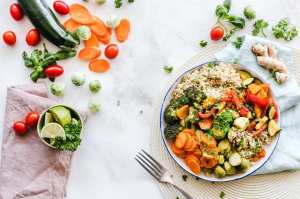 |
| Image Source - Google | Image by pexels |
Eating healthy foods is not about strict limits, staying lean and unhealthy or depriving yourself of your favorite foods. Instead, it is about feeling good, having more energy, improving your health, and developing your emotions.
A healthy diet does not have to be extreme. If you feel frustrated with all the healthy eating tips and diet tips out there, you are not alone. It seems that every time an expert tells you what a certain food is, you will find that the opposite is true.
While some foods or nutrients have been proved to improve mood, it is your entire eating pattern that is most important. Wherever possible, replacing manufactured foods with real food should be the cornerstone of healthy eating.
It can make a tremendous difference in how you think, look, and feel if you eat a diet that is as similar to natural as possible. By applying these simple tips, you can break free from confusion and learn how to do it and stick to a delicious, varied and nutritious diet that is good for your mind and body.
By following these basic guidelines, you will be able to overcome your confusion and learn how to eat a delicious, varied, and healthy diet that is beneficial for both your mind and body which are Healthy eating fundamentals
While some foods may cause certain people to gain weight, we all need a diet that has a balance of protein, fat, carbohydrates, fibre, vitamins, and minerals to keep our bodies healthy.
You don't have to cut out certain items from your diet; instead, pick the healthiest selections in each category.
Protein
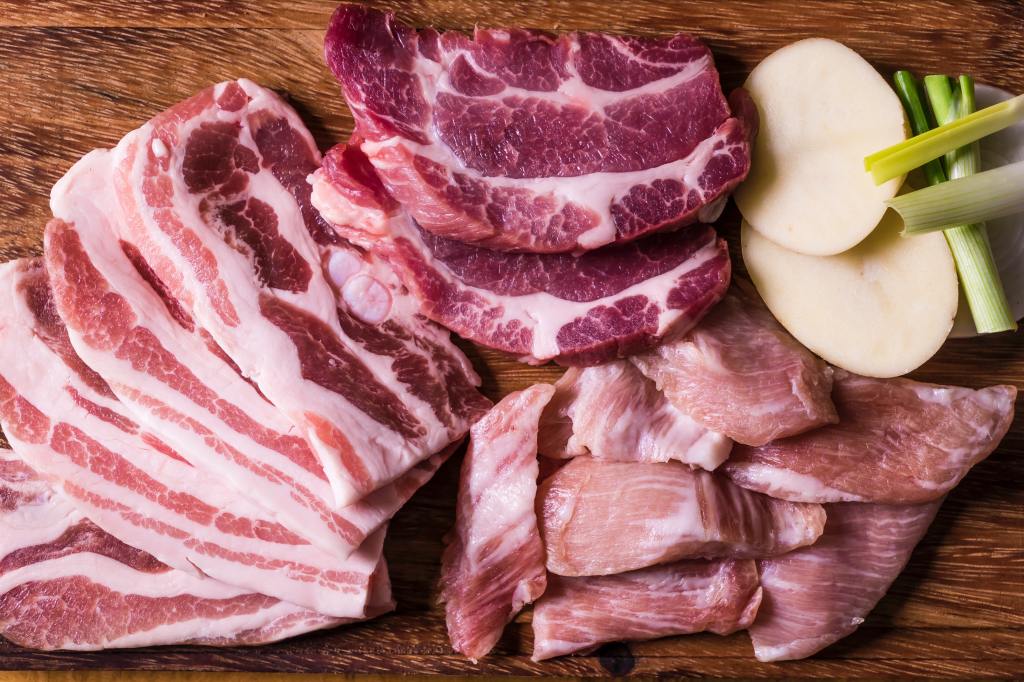 |
| Image Source - Google | Image by pexels |
Proteins give you the ability to work and move on while also supporting your emotional functioning and mental functioning. Too much protein can be dangerous for people with kidney disease, but recent research suggests that most of us need very high protein, especially as we grow older.
That doesn't mean you have to eat a lot of animal products, a variety of plant protein sources each day can ensure that your body gets all the important protein it needs.
Fats
Fats are not the same. While bad fats can damage your diet and increase the risk of certain diseases, good fats protect your brain and heart.
In fact, healthy fats such as omega 3s are essential for your physical and emotional health. Incorporating more healthy fats into your diet can help improve your mood, increase your well-being, and lower your waistline.
Carbohydrates
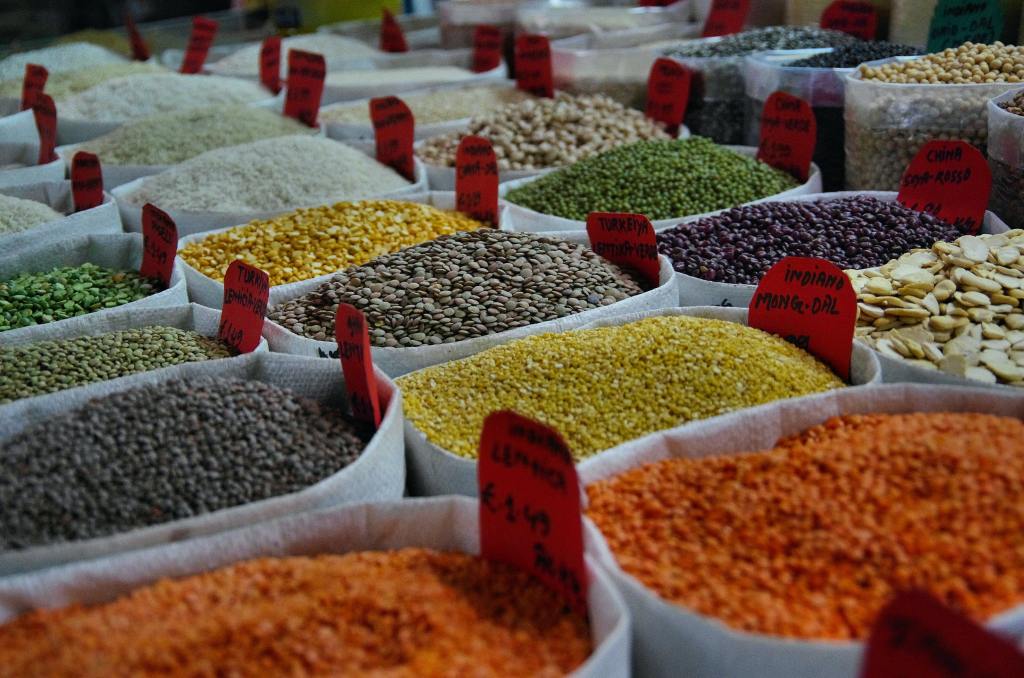 |
| Image Source - Google | Image by pexels |
Carbohydrates are one of the sources of energy in your body. But most should be derived from complex, unrefined carbs (vegetables, whole grains, fruits) rather than sugar and refined carbs.
Reducing white bread, cakes, starch and sugar can prevent rapid spikes in the blood, fluctuations in mood and energy, and fat formation, especially in your pelvis.
Fiber
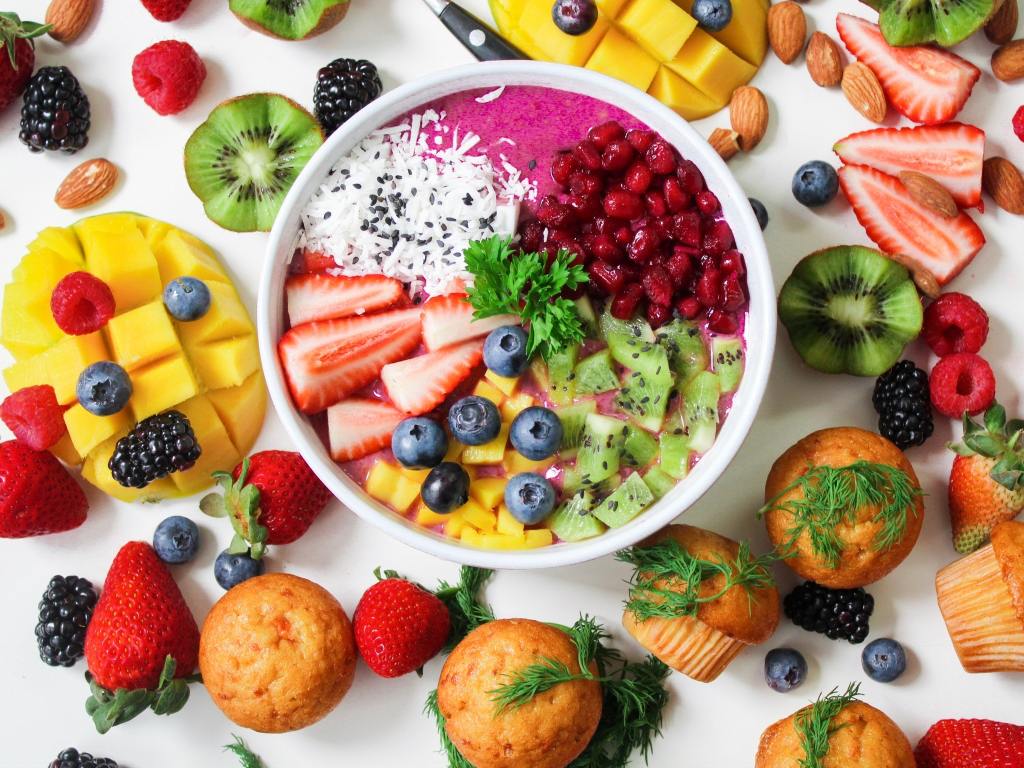 |
| Image Source - Google | Image by pexels |
Eating a high fiber diet (cereals, fruits, vegetables, nuts and beans) can help you stay healthy and reduce your risk of heart disease, stroke and diabetes. It can also improve your skin and help you lose weight.
Calcium
And by leading to bone loss, not getting enough calcium in your diet can also contribute to anxiety, depression, and sleep problems. Regardless of your age or gender, it is important to include calcium-rich foods in your diet, to limit calcium intake, and to get enough magnesium and vitamin D and K to help calcium do its job.
MAKING CHANGES TO A HEALTHY DIET
Switching to a healthier diet doesn't have to be a suggestion at all. You don’t have to be perfect, you don’t have to completely eliminate the enjoyable foods, and you don’t have to change everything at once which often leads to cheating or quitting on your new diet plan. A better approach is to make a few small changes at a time.
Keeping your goals modest can help you to achieve more in the long run without feeling deprived or frustrated by major dietary adjustments. Consider planning a healthy diet as a few, manageable steps like adding a salad to your diet once a day. As your small changes become a habit, you can continue to add healthy choices.
SELF-IMPROVEMENT
To achieve success try to keep things simple. A healthy diet does not have to be difficult to follow. Instead of worrying too much about calories, for example, think about your diet by color, variety, and freshness. Focus on avoiding processed foods and choosing new ingredients where possible.
PREPARE YOUR EXTRA FOOD
Cooking a lot of food at home can help you control what you eat and better focus on what goes into your diet. You will eat fewer calories and avoid chemical additives, extra sugar, and unhealthy fats in mixed and processed foods that can leave you feeling tired, bloated and irritated and increase your symptoms of depression, stress, and anxiety.
MAKE THE NECESSARY ADJUSTMENTS
When you reduce unhealthy foods in your diet, it is important to include them in other healthy ways. Substituting harmful Tran’s fats with healthy fats (such as replacing fried chicken with grilled salmon) will make a positive difference to your health. Replacing animal fats with refined carbohydrates or (such as turning your breakfast bacon into donuts) will not reduce your risk of heart disease or improve your mood.
It is important to know what is in your diet as manufacturers often hide large amounts of sugar or unhealthy fats in processed foods, even foods that mean they are healthy.
FOCUS ON HOW YOU FEEL AFTER EATING
This will help to promote new healthy habits and habits. Healthy eating, you will feel better after eating. The more junk food you eat, the more likely you are to feel uncomfortable, nauseous, or exhausted.
DRINK PLENTY OF WATER
Water helps to streamline our waste and toxic product systems, but most of us go through life dehydrated causing fatigue, low energy, and headaches. It is common to thirst for hunger, so having plenty of water will also help you to choose healthy food.
MODERATION
What is the balance? In short, it means eating only the foods your body needs. You should feel satisfied at the end of the meal, but not included. For many of us, moderation means less food than we do now. But it does not mean eliminating your favorite foods.
TRY NOT TO RESTRICT CERTAIN FOODS
When you restrict certain foods, it is only natural to want those foods too much, and when you feel like giving up when you give in to temptation. Start by reducing the portions of unhealthy foods and not eating them regularly. As you cut back on your unhealthy diet, you may find yourself craving less or just thinking about having a good time from time to time.
CONSIDER SMALL PORTIONS
Feeding sizes have been written recently. When eating out, choose a starter instead of an entree, split a meal with a friend, and order nothing high. At home, visual cues can help with the size of the parts.
Your offering of meat, fish, or poultry should be about the size of a card deck and half a cup of mashed potatoes, rice, or pasta is about the size of a traditional bulb.
By serving your food on small plates or dishes, you can fool your mind into thinking that it is a big part of it. If you do not feel satisfied at the end of the meal, add more leafy vegetables or surround yourself with fruit.
TAKE YOUR TIME
It’s important to slow down and think of food as food rather than just a swallow between meetings or on the way to pick up the kids. It takes a few minutes for your brain to tell your body that it has had enough to eat, so eat slowly and stop eating before you feel full.
EAT WITH OTHERS WHENEVER POSSIBLE
Eating alone especially in front of the TV or computer often leads to unreasonable binge eating.
LIMIT SNACKS AT HOME
Be careful with the food you store. It is very difficult to eat a balanced diet if you have unhealthy snacks and manage to get ready. Instead, surround yourself with healthy choices and when you are ready to reward yourself with a special meal, go out and get it right away.
MANAGE EMOTIONAL FOOD
 |
| Image Source - Google | Image by pexels |
We do not always eat to satisfy hunger. Many of us also turn to food to reduce stress or to deal with unpleasant emotions such as sadness, loneliness, or boredom. But by learning healthy ways to manage stress and emotions, you can regain control over your diet and your emotions.
NOT JUST WHAT YOU EAT, BUT WHEN YOU EAT
Eat breakfast, and eat small meals throughout the day. A healthy breakfast can energize your body while eating smaller, healthier meals keep your energy up throughout the day.
AVOID EATING AT NIGHT
Try to eat dinner early and fast for 14-16 hours until early in the morning. Studies show that only eating when you are very active and giving your digestive system a long break each day can help control weight.
ADD MORE FRUIT AND VEGETABLES TO YOUR DIET
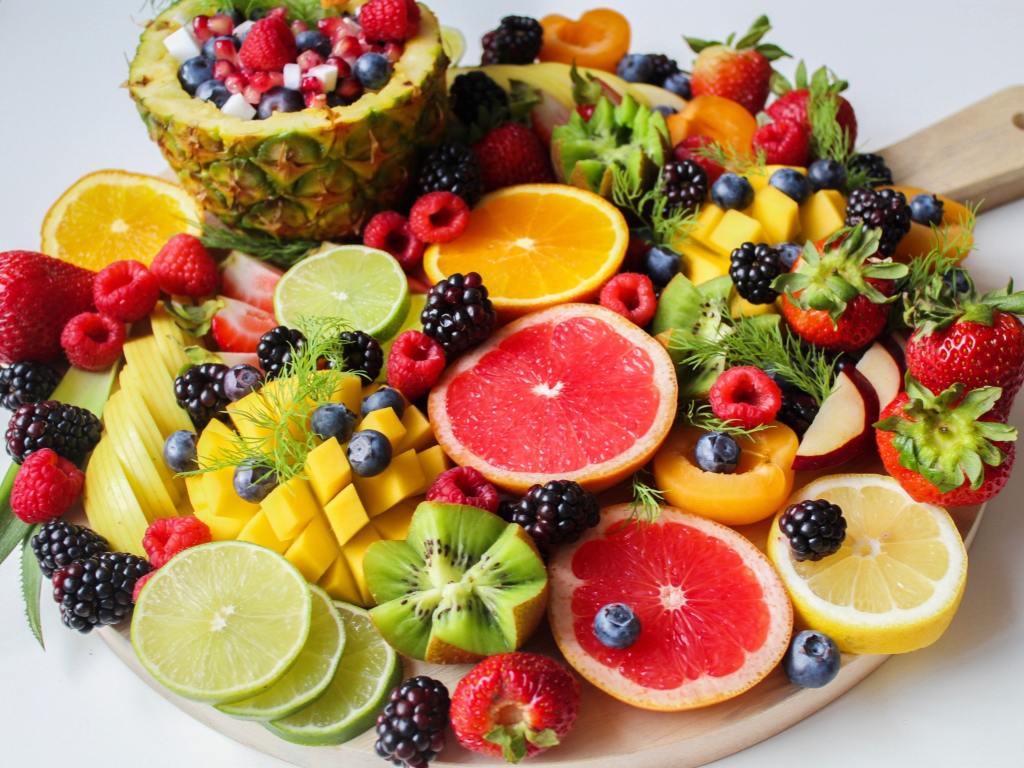 |
| Image Source - Google | Image by pexels |
Fruit and vegetables are low in calories and nutrient-dense, which means they are packed with vitamins, minerals, antioxidants, and fiber.
Focus on eating the recommended daily amount of at least five servings of fruit and vegetables and it will naturally fill you up and help you cut back on unhealthy foods. A serving is half a cup of raw fruit or veg or a small apple or banana, for example. Most of us need to double the amount we currently eat.
TO INCREASE YOUR INTAKE
Add antioxidant-rich berries to your favorite breakfast cereal, Eat a medley of sweet fruit like oranges, mangos, pineapple, grapes, or dessert.
Swap your usual rice or pasta side dish for a colorful salad Instead of eating processed snack foods, snack on vegetables such as carrots, snow peas, or cherry tomatoes along with a spicy hummus dip or peanut butter
HOW TO MAKE VEGETABLES DELICIOUS
While plain salads and spicy vegetables can quickly become starving, there are many ways to add flavor to your vegetable dishes.
COLOR YOUR DIET
Bright, deep vegetables not only contain high concentrations of vitamins, minerals and antioxidants but can also vary the taste and make the food look more appealing. Color in fresh or sliced tomatoes, shredded carrots or beets, chopped red carrots, yellow squash, or sweet, colorful peppers.
MAKE THE SALAD GREENS MORE VIBRANT
There is no lettuce on this branch. Nutrient-dense foods include kale, arugula, spinach, mustard greens, broccoli, and Chinese cabbage. Fill it with olive oil, add spicy dressing, or scattering chunks of nuts, chicken, a little bacon, parmesan cheese, or goat cheese to add flavor to your salad dressing.
YOUR SWEET TOOTH WILL BE SATISFIED
Carrots, beets, sweet potatoes, yams, onions, bell peppers, and squash are all naturally excellent veggies that can add taste to your diet while also reducing your desire for extra sugar.
To make a delightful dessert, add them to soups, stews, or pasta sauces. Cook green beans, broccoli, Brussels sprouts, and asparagus in a new way.
Instead of boiling or steaming these healthy sides, try grilling, roasting, or pan-frying them with chili flakes, garlic, shallots, mushrooms, or onion. Or marinate in tangy lemon or lime before cooking.


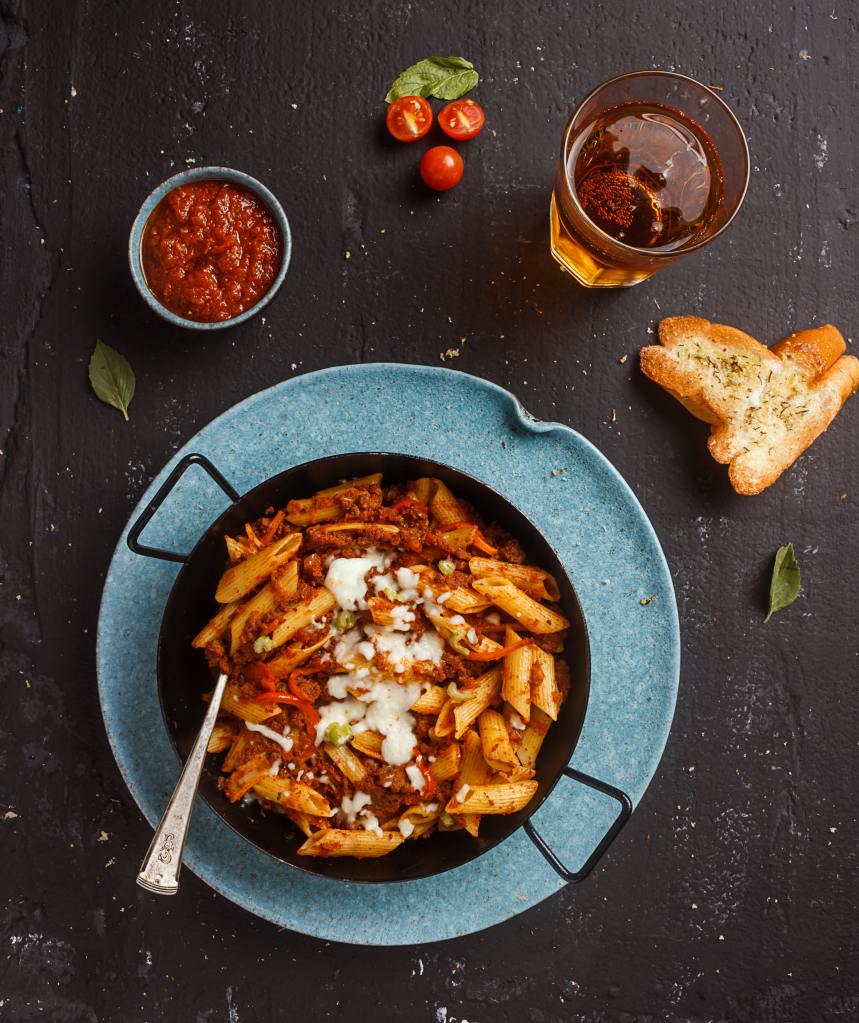



.jpg)


0 Comments:
Post a Comment